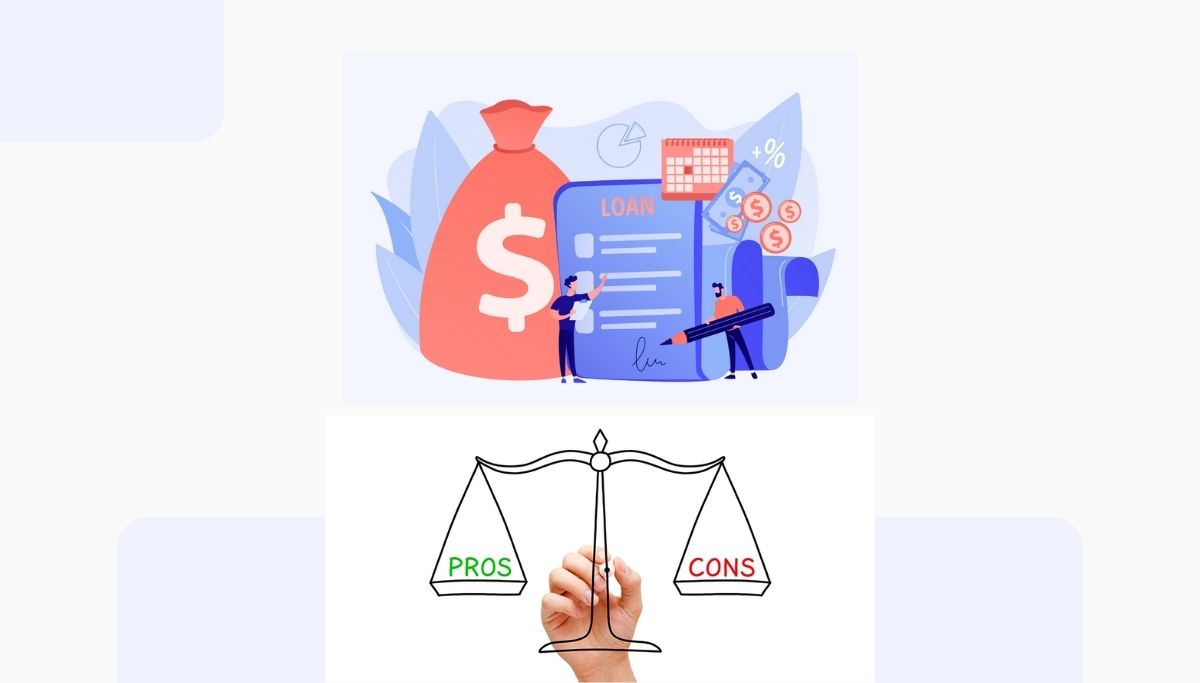Table of Contents
If you want to save your money or pay off your student loans as soon as possible, you could consider refinancing. You can refinance federal and private student loans together if you have both. Here’s what you should know before giving your refinance loan application, including the essential pros and cons of refinancing student loans.
What Is Student Loan Refinancing?
Student loan refinancing is a process where you work with a private lender to take out a loan for the amount of your current debt. You use the new loan to pay off your old ones. The refinance loan has different repayment terms than your old ones, including interest rate, monthly payment, and length of repayment.

Major Pros And Cons Of Refinancing Student Loans
Pros Of Refinancing Student Loans
Refinancing your student loans is a quick and easy process, but there are certain student loan refinance pros and cons to be aware of. Refinancing offers several benefits that can greatly improve your student loan situation and debt management, but it’s important to understand both the positives and negatives before applying.
1. Save Money
The first pros and cons of refinancing student loans is saving money. When you refinance, you can qualify for a lower interest rate. With a lower rate, more of your payment goes toward the loan principal rather than interest, allowing you to save a significant amount of money.
2. Reduce Your Monthly Payment
When you refinance, you can extend your repayment term or qualify for a lower interest rate. Either way, you could be eligible for a lower monthly payment, freeing up more money to maintain your monthly budget.
3. Pay Off Your Student Debt Faster
With more of your payment going toward the principal rather than interest, refinancing can help you pay off your debt ahead of schedule.
4. One Easy Payment
Chances are that you took out more than just one student loan. You may even have a mix of federal and private student loans. If that’s the case, juggling multiple loans, monthly payments, and due dates can be confusing. Refinancing can help streamline things for you. When you refinance, you consolidate your student loans together. Going forward, you’ll have just one loan to manage and one easy monthly payment. The Pros and cons of refinancing student loans can be very handy if we compare them in the right way.
Looking for student loans? All you have to do is fill the form on this page!
Cons Of Refinancing Student Loans
Student loan refinancing can be extremely beneficial, but it’s not for everyone. There are risks involved, especially if you have federal student loans. Here are the primary cons of refinancing student loans.
1. Lose Access To Income Repayment
Under an Income-Driven Repayment (IDR) plan, the loan servicer extends your repayment term and caps your payments at a percentage of your discretionary income, dramatically reducing your payments. However, you no longer qualify for IDR plans once you refinance your loans. If you’re in a low-paying field, or your income fluctuates from year to year, refinancing may not be a smart option for you. It may be a better idea to keep your federal loans as is so you can qualify for an IDR plan.
2. Unable To Enter Your Loans Into Deferment Or Forbearance
With federal loans, you can enter into deferment or forbearance if you experience financial hardship, such as an illness or job loss. Under these programs, you can postpone making payments without entering into default, giving you time to get back on your feet.
Once you refinance, you lose out on this federal benefit. Some refinancing lenders do offer forbearance options, but their versions tend to be stricter and shorter in duration. If you work in a volatile field or have recurring health issues, it may be wise to postpone refinancing so you have the option of placing your loans into deferment or forbearance.
3. Won’t Qualify For Federal Loan Forgiveness
Some federal student loans are eligible for loan forgiveness programs, such as Public Service Loan Forgiveness. But once you refinance, you no longer qualify for loan forgiveness. And no private lender offers forgiveness options.
If you work for a non-profit organization or government agency and plan to do so for the next ten years, it may be financially wise to pursue loan forgiveness rather than student loan refinancing.
Weigh The Pros And Cons Of Refinancing Student Loans Before Applying
Student loan refinancing is an effective way to manage your debt, helping you save money, reduce your payment, and streamline your loans. However, there are some significant pros and cons of refinancing student loans that you should consider before applying for a loan.
Overall, refinancing is a smart choice for those with good credit, a stable income, and who don’t plan on using federal loan benefits.
By doing your homework on refinancing student loans pros and cons, you can ensure you make the right decision for your needs. Just remember to factor in all the pros and cons of refinancing student loans before choosing to apply for your favorite loan.
Should You Refinance Student Loans?
Consider a student loan refinance only if,
- You have excellent credit or a willing co-signer with excellent credit
- You have a stable job and a good income
- Your initial loans had variable interest rates, and you are looking to lock in a fixed interest rate loan
- You want to consolidate more than one student loan into one easy monthly payment
- You have been making your student loan payments on time and on a consistent basis
- A credit counselor can help you to decide if refinancing your student loans is a good plan for you right now.
Thank you for reading this blog on ‘Pros And Cons Of Refinancing Student Loans’ If you’d like to read more, here are some blogs that might be of interest to you:










0 Comments